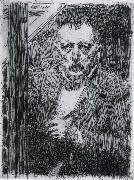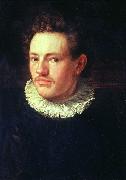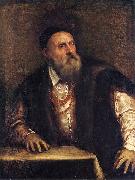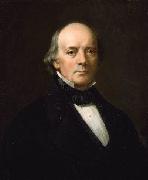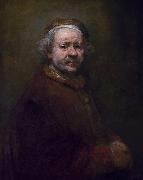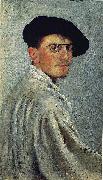Wholesale Oil Painting No Minimum |
|||||||||||
|
|
|||||||||||

|
|||||||||||
|
|
|
||||||||
Anders ZornSwedish 1860-1920 Swedish painter, etcher and sculptor. He was brought up by his grandparents at Mora. As he displayed a precocious talent for drawing he was admitted to the preparatory class of the Kungliga Akademi for de Fria Konsterna, Stockholm, at the age of 15. Dissatisfied with the outdated teaching and discipline of the Academy and encouraged by his early success as a painter of watercolour portraits and genre scenes (e.g. Old Woman from Mora, 1879; Mora, Zornmus.) Zorn left the Academy in 1881 to try to establish an international career. He later resided mainly in London but also travelled extensively in Italy, France, Spain, Algeria and the Balkans and visited Constantinople. However, he continued to spend most of his summers in Sweden. |
||||||||
|
|
||||||||
Self Portrait.
Self Portrait. Painting ID:: 31577 |
mk73
1911
pencil drawing
15.8x11.9cm
mk73 1911 pencil drawing 15.8x11.9cm |
|||||||
|
|
||||||||
Hans von Aachenwas a German mannerist painter. His name is derived from the birth place of his father, Aachen in Germany. Other variations of the name include Johann von - and - von Achen and various concisions like Janachen, Fanachen, Abak, Jean Dac, Aquano, van Aken etc. Hans von Aachen began painting in Germany as a pupil of the Flemish master E. Jerrigh. He then moved to Italy in 1574 to study further. He toured Rome and Florence, but eventually settled in Venice. He initially became a pupil of Kaspar Rems, but soon decided to develop his own mannerist technique, by studying Tintoretto and Michelangelo's followers. However, during all of his life he was influenced by the style of Bartholomeus Spranger and Hendrick Goltzius who dominated the art scene in Germany at the time. He returned to Germany in 1588 where he became well known as a painter of portraits for noble houses. He painted several works for Duke William V of Bavaria. He married Regina, the daughter of the composer Orlando di Lasso in Munich. In Munich he came into contact with the Imperial Court in Prague. In 1592 he was appointed official painter of Rudolph II, Holy Roman Emperor. However, Von Aachen only moved to Prague in 1601, where he stayed painting commissions from Emperor Rudolph II, and later from Matthias I. Amongst van Aachens pupils were Peter Isaak and Joseph Heinz. His works have been copied by Wolfgang Kilian, Dominicus Custos and Jan Sadeler. |
||||||||
|
|
||||||||
|
|
Self portrait.
Self portrait. Painting ID:: 67876 |
Year ca. 1574(1574)
Technique Panel
Dimensions 51.2 X 36.5 cm
Year ca. 1574(1574) Technique Panel Dimensions 51.2 X 36.5 cm |
||||||
|
|
||||||||
TitianItalian High Renaissance Painter, ca.1485-1576 Italian painter active in Venice. As a young man he was taught by the Bellini family and worked closely with Giorgione. His early works are so similar in style to Giorgione's as to be indistinguishable, but soon after Giorgione's early death Titian established himself as the leading painter of the Republic of Venice. Among his most important religious paintings is the revolutionary and monumental Assumption (1516 ?C 18) for Santa Maria dei Frari, in which the Virgin ascends to heaven in a blaze of colour accompanied by a semicircle of angels. Titian was also interested in mythological themes, and his many depictions of Venus display his work's sheer beauty and inherent eroticism. Bacchus and Ariadne (1520 ?C 23), with its pagan abandon, is one of the greatest works of Renaissance art. Titian was sought after for his psychologically penetrating portraits, which include portrayals of leading Italian aristocrats, religious figures, and Emperor Charles V. He reached the height of his powers in The Rape of Europa (c. 1559 ?C 62), one of several paintings done for Philip II of Spain. He was recognized as supremely gifted in his lifetime, and his reputation has never declined. |
||||||||
|
|
||||||||
|
|
Self portrait.
Self portrait. Painting ID:: 78986 |
ca. 1550-1562
Medium Oil on canvas
Dimensions 96 x 75 cm (37.8 x 29.5 in)
cyf ca. 1550-1562 Medium Oil on canvas Dimensions 96 x 75 cm (37.8 x 29.5 in) cyf |
||||||
|
|
||||||||
Chester Hardingpainted Self Portrait in 1843 |
||||||||
|
|
||||||||
|
|
Self Portrait.
Self Portrait. Painting ID:: 80216 |
Self Portrait. about 1843. By Chester Harding, American, 1792 - 1866. 76.2 x 63.18 cm (30 x 24 7/8 in.). Oil on canvas.
Classification: Paintings
1843
cjr Self Portrait. about 1843. By Chester Harding, American, 1792 - 1866. 76.2 x 63.18 cm (30 x 24 7/8 in.). Oil on canvas. Classification: Paintings 1843 cjr |
||||||
|
|
||||||||
Rembrandt Peale1778-1860 Rembrandt Peale Galleries Rembrandt Peale (February 22, 1778 ?C October 3, 1860) was a 19th century American artist that received critical acclaim for his portraits of presidents George Washington and Thomas Jefferson. Although modern art critics would consider Peale??s artwork as French neoclassical, its dark and stylized characteristics are similar to 15th and 16th century paintings. Rembrandt Peale was born the third of six surviving children (eleven had died) to his mother, Rachel Brewer, and father, Charles Willson Peale in Bucks County, Pennsylvania, on February 22, 1778. The father, Charles, also a notable artist, taught each child to paint scenery and portraiture, and Rembrandt was no exception. Charles tutored Rembrandt about the importance of having a strong mind from learning arts and sciences. At the age of eight, Rembrandt discovered drawing, and at thirteen, painted his first known self-portrait. Later on in his life, Rembrandt Peale "often showed this painting to young beginners, to encourage them to go from 'bad' to better..." like his steady progressions to become a successful portraitist. A year after his mother??s death and remarriage of his father, Rembrandt Peale left the school of the arts, thereby applying his time to completing his first ever self-portrait at the age of 13. The canvas illustrates early mastery of a young aspiring artist, seeming very mature. The clothes, however give the notion that Peale over-exaggerated what a 13 year old would look like. This style demonstrates early forms of neoclassicism by the looks of Peale's angel-like hair, the way it waves and curls in such a fashion so as to depict an angel from a general Renaissance artist's works of art. In July of 1787, Charles Willson Peale introduced his son Rembrandt to George Washington, where the young aspirant artist watched his father paint the remarkable figure of the country. In 1795, at the age of 17, Rembrandt painted an aging Washington, though the painter had depicted the politician as far more aged than the original facial characteristics. It did, nevertheless attain praise and Rembrandt had begun his debut. At the age of 20, Rembrandt married 22-year-old Eleanor May Short (1776-1836) at St. Joseph's Catholic Church in Philadelphia. During their marriage, Rembrandt and Eleanor had nine children: Rosalba, Eleanor, Sarah Miriam, Michael Angelo, and Emma Clara among them. In 1822, Peale moved to New York City where he embarked on an attempt to paint what he hoped would become the "standard likeness" of Washington. He studied portraits by other artists including John Trumbull, Gilbert Stuart and his own father, as well as his own 1795 picture which had never truly satisfied him. His resulting work Patriae Pater, completed in 1824, depicts Washington through an oval window, and is considered by many to be second only to Gilbert Stuart's iconic Athenaeum painting of the first president. Peale subsequently attempted to capitalize on the success of what quickly became known as his "Porthole" picture. Patriae Pater was purchased by Congress in 1832 and still hangs in the U.S. Capitol. Later on, Peale made over 70 detailed replicas of the same "father of our country", the first President of the United States. Peale continued to paint other noted portraits, such as those of the third president Thomas Jefferson while he was in office (1805), and later on a portrait of Chief Justice John Marshall. |
||||||||
|
|
||||||||
|
|
Self portrait.
Self portrait. Painting ID:: 80521 |
1669
Medium Oil on canvas
Dimensions 86 x 70.5 cm (33.9 x 27.8 in)
cyf 1669 Medium Oil on canvas Dimensions 86 x 70.5 cm (33.9 x 27.8 in) cyf |
||||||
|
|
||||||||
Leon BakstRussian Art Deco Designer and Illustrator, 1866-1924 |
||||||||
|
|
||||||||
|
|
Self Portrait.
Self Portrait. Painting ID:: 93383 |
Date 1893(1893)
Medium oil on canvas
TTD Date 1893(1893) Medium oil on canvas TTD |
||||||
|
|
||||||||
|
Leon Bakst Russian Art Deco Designer and Illustrator, 1866-1924 Self Portrait. Date 1893(1893) Medium oil on canvas TTD |
||||||||
|
|
||||||||
|
Prev Next
|
||||||||
|
|
||||||||
|
Related Paintings to Leon Bakst :. |
||||||||
|
|
||||||||
|
CONTACT US |
